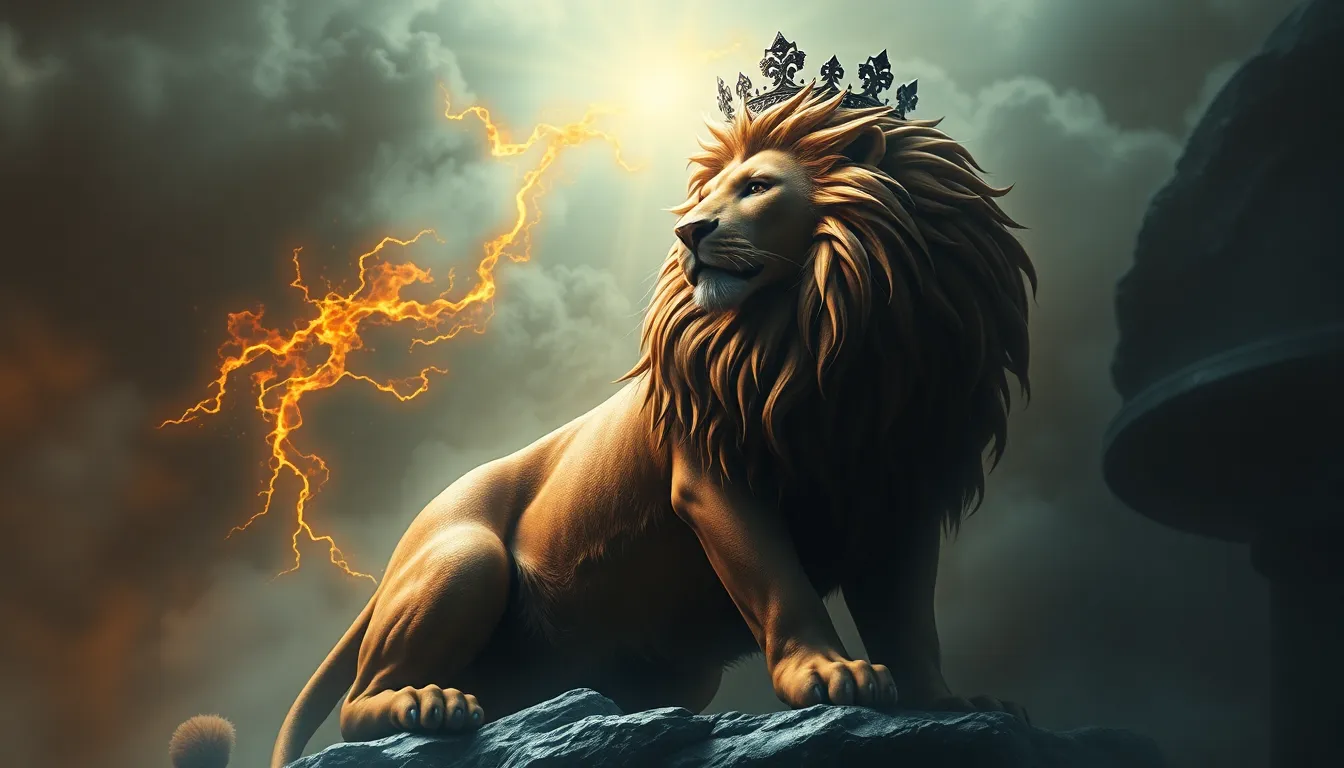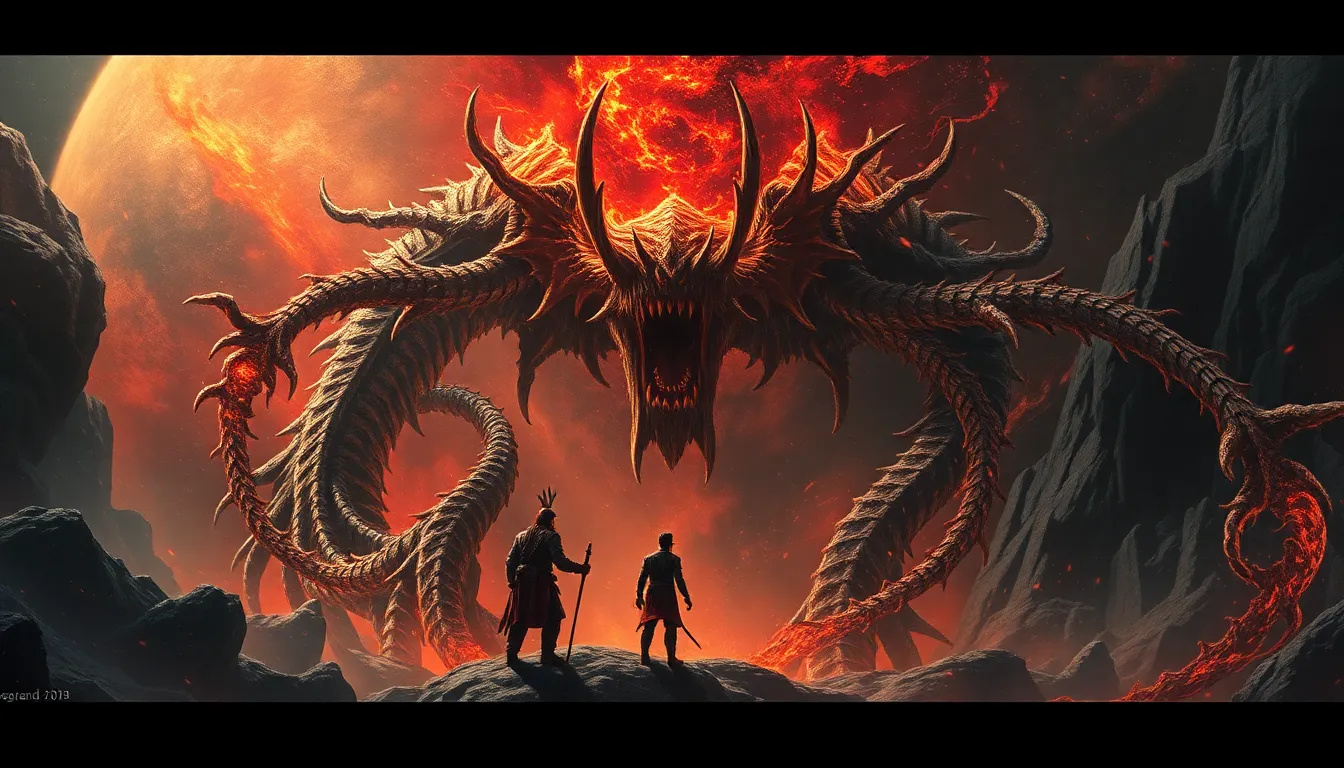The Symbolism of the Lion: King of Beasts in Mythology
1. Introduction
The lion, often referred to as the “King of the Beasts,” holds a prominent place in various cultures around the world. Its majestic presence and powerful demeanor have made it a symbol of strength, courage, and nobility. From ancient civilizations to modern interpretations, the lion’s significance in mythology is profound and multifaceted. In this article, we will explore the rich tapestry of lion symbolism across different cultures and historical contexts, highlighting its importance in mythology.
2. Historical Context of Lions in Mythology
Throughout history, lions have been revered as symbols of power and royalty. Various ancient civilizations recognized the lion’s formidable nature and incorporated it into their mythologies and iconographies. The lion’s strength and regal appearance made it an ideal emblem for kings, warriors, and deities.
- In many cultures, lions were seen as protectors and guardians.
- Their portrayal in art and literature often reflected their status as symbols of authority.
- Lions were frequently associated with the sun, representing vitality and life.
3. The Lion in Ancient Egyptian Mythology
In ancient Egypt, lions held significant religious and cultural importance. The lioness goddess Sekhmet, known as the goddess of war and healing, was often depicted as a lioness or a woman with a lion’s head. She embodied the fierce and protective aspects of the lion, symbolizing both destruction and healing.
Moreover, lions were prominent in Pharaoh iconography, representing the king’s power and divine protection. Statues and carvings of lions were placed at the entrances of temples and tombs, symbolizing strength and authority.
4. Lions in Mesopotamian Mythology
In Mesopotamian mythology, lions were revered as protectors. The Sumerians and Babylonians depicted lions as guardians of cities and temples. The Lion of Babylon, a notable symbol, represented the might of the Babylonian Empire and was often used in art and architecture to convey strength and protection.
In various Sumerian and Babylonian myths, lions were associated with gods and goddesses, reinforcing their role as powerful protectors that guarded against evil forces.
5. The Lion in Greco-Roman Mythology
The lion’s significance continued in Greco-Roman mythology, most notably through the story of the Nemean Lion. This mythical beast was known for its impenetrable hide and ferocious nature. In the Twelve Labors of Hercules, Hercules was tasked with slaying the Nemean Lion, symbolizing the triumph of human strength over nature’s most formidable creatures.
Furthermore, in Roman culture, lions were used in spectacles and gladiatorial games, particularly in the Colosseum, where they were pitted against gladiators. This depicted the lion as both a symbol of nobility and a representation of the brutal reality of power and conquest.
6. Lions in Asian Mythology
Asian mythology also features the lion prominently. In Hindu mythology, Narasimha, an avatar of Vishnu, is depicted as a lion-man who protects the faithful from evil. This representation emphasizes the lion’s role as a fierce protector and a symbol of divine strength.
In Chinese mythology, the guardian lions, known as Shishi, are often placed at the entrances of temples and palaces. These stone lions symbolize protection, prosperity, and good fortune, reflecting the lion’s enduring status as a guardian figure in Asian cultures.
7. The Symbolism of the Lion in African Folklore
In many African cultures, lions symbolize courage, leadership, and strength. They are often featured in folktales and proverbs, serving as important characters that teach values and lessons. For instance:
- The lion is frequently portrayed as a wise leader or a fierce guardian.
- Proverbs may highlight the lion’s bravery and the importance of courage in the face of adversity.
These narratives underscore the lion’s role as a cultural symbol of respect and admiration across the continent.
8. The Lion in Christian Symbolism
In Christian symbolism, the lion is often associated with Christ and the Church. The lion represents strength, resurrection, and the triumph of good over evil. In the Book of Revelation, Jesus is referred to as the “Lion of the Tribe of Judah,” symbolizing His authority and power.
The lion is also seen in various depictions of saints, embodying courage and faith. This connection reinforces the lion’s role as a symbol of divine protection and strength within Christian theology.
9. Contemporary Interpretations of Lion Symbolism
In contemporary times, the lion continues to be a potent symbol in literature, film, and art. Its representation often reflects themes of bravery, leadership, and the fight for justice. Notable examples include:
- The character of Aslan in C.S. Lewis’s “The Chronicles of Narnia,” who embodies wisdom and sacrifice.
- The lion as a symbol for wildlife conservation, representing efforts to protect endangered species and their habitats.
These modern interpretations highlight the lion’s ongoing relevance as a symbol of strength and guardianship, resonating with audiences around the world.
10. Conclusion
The symbolism of the lion as the “King of Beasts” transcends cultural boundaries and historical epochs. From ancient civilizations to contemporary interpretations, the lion has embodied power, courage, and protection. Its multifaceted representation in mythology serves as a reminder of the qualities we admire and aspire to emulate.
As we reflect on the enduring legacy of the lion, it becomes clear that this majestic creature will continue to inspire and captivate the human imagination, reminding us of the timeless virtues of strength, leadership, and the fight against adversity.




